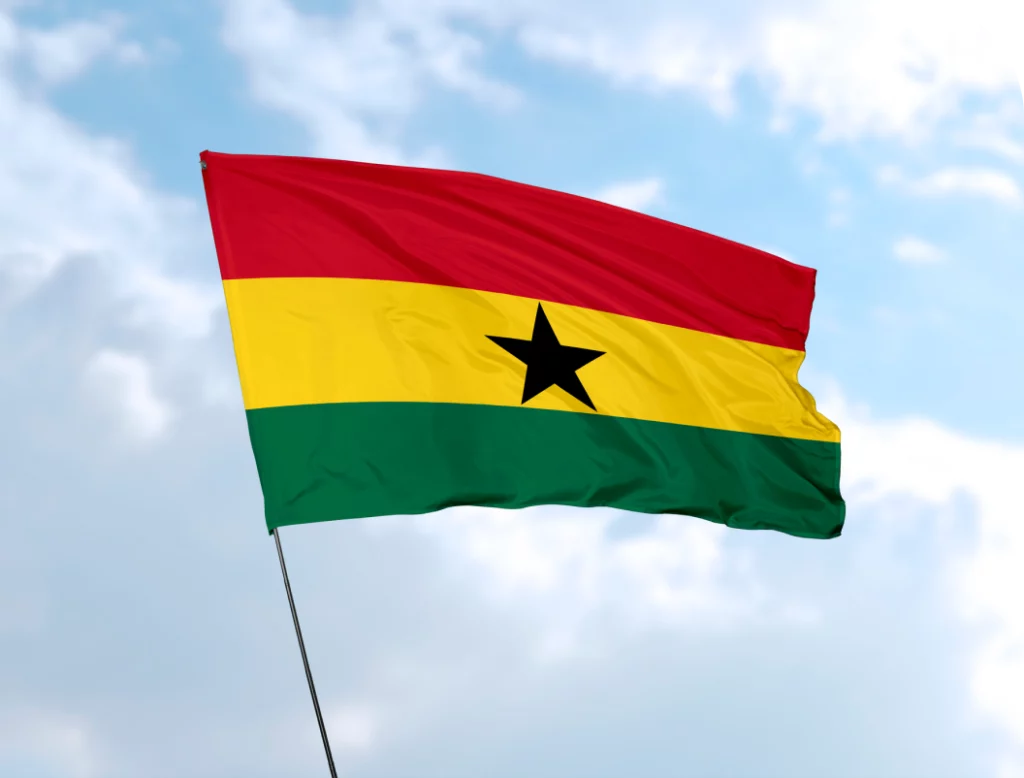
Free Webinar: Exploring Surrogacy in Ghana & Uganda
Gain comprehensive overview of surrogacy in Ghana and Uganda, featuring insights from industry professionals and real-life experiences from surrogates and intended parents.
Watch Now
As surrogacy options in countries like the USA, Canada, and the UK become increasingly costly, Ghana emerges as a more affordable alternative for intended parents seeking to grow their families. Offering both traditional and gestational surrogacy, Ghana’s surrogacy programs provide a range of options at a fraction of the cost. In this guide, we’ll explore surrogacy laws, costs, medical facilities, and what intended parents can expect when choosing surrogacy in Ghana.
Surrogacy in Ghana has been practiced since at least 2017, with clients typically coming from the USA, Germany, and neighbouring countries like Nigeria. Ghana offers both gestational and traditional surrogacy, with local egg donors and the option to import embryos or donor eggs from other countries. Intended parents can take advantage of Ghana’s relatively quick surrogate and donor match times.
How Does Surrogacy
in Ghana Work?
Surrogacy in Ghana is governed by a clear and supportive legal framework, making it an appealing option for intended parents. With competitive costs and efficient matching processes, Ghana provides a reliable pathway to parenthood. The legal provisions, including pre-birth parental orders, ensure that intended parents are recognized from the moment of birth. Furthermore, surrogacy costs are significantly lower than in Western countries, making it a financially viable choice without compromising on the quality of care. This section will outline the legal framework, costs, matching timelines, and exit procedures for newborns, providing a comprehensive overview of the surrogacy process in Ghana.

Who can build a family in Ghana?
Married heterosexual couples
Singles
Legal Framework for Surrogacy in Ghana
Ghana has a clear legal process for surrogacy, which makes it a reliable option for intended parents. Under Section 22 of Ghana’s Registration of Births and Deaths Act, 2020, intended parents can apply for a pre-birth parental order, ensuring that they are legally recognized as the parents of the child from birth. This application must be submitted within 12 weeks of embryo transfer and completed by 28 weeks after the order is granted.
Legal recognition for intended parents
Pre-birth orders for parental rights
Regulated compensation for surrogates
Surrogacy Costs in Ghana
One of the most attractive aspects of surrogacy in Ghana is the price. The cost of surrogacy in Ghana ranges from USD 30,000 to USD 58,400, depending on the program type and services offered. This includes surrogate compensation, IVF treatment, and medical care. For those considering surrogacy in multiple countries, Ghana offers a significant cost advantage without sacrificing quality care.
Surrogate Compensation: Ghanian surrogates are compensated between GHS 50,000 and GHS 120,000, depending on the program. IVF Costs in Ghana: IVF treatments vary in cost depending on the clinic, but generally, Ghana offers competitive pricing compared to Western countries.
COSTS RANGE FROM
USD 30,000
TO
USD 58,000
Surrogate & Donor Match Times
Surrogates and donor are readily available in Ghana, with match times of 2 -4 weeks.
Egg donors in Ghana are local women, though eggs from other cultural groups can be imported from Europe at additional cost.
MATCH TIMES
2- to 4-week
Exit Procedures for Newborns
The time required to obtain travel documents for newborns depends on the nationality of the intended parents. Post-birth, families can expect to wait anywhere from 4 to 16 weeks to complete all necessary documentation for international travel.
EXIT PROCEDURES
4- to 16-week

Quality of Care in Ghana
Hospitals and Medical Care
IVF and hospital care in Ghana vary significantly in terms of quality and cost. Surrogacy births generally take place in private hospitals with better facilities. The less expensive IVF clinics and hospitals are often located an hour outside of Accra.
Surrogacy Providers in Ghana
Ghana’s surrogacy providers, particularly those based in Accra, offer full-service programs covering everything from IVF and surrogate matching to legal support and accommodation. Growing Families has met with the top surrogacy agencies and IVF clinics to ensure intended parents can access reliable, high-quality services. Please contact us for more information about specific providers in Ghana.
Why Choose Surrogacy in Ghana?
For those exploring affordable surrogacy options, Ghana offers legal protection, high-quality care, and competitive pricing. With surrogacy costs in Ghana being significantly lower than in the USA or Europe, intended parents can achieve their dream of starting a family without facing prohibitive costs.
Economic & Political Stability
Ghana is known for its political stability and steady economic growth. With nearly 35 million inhabitants, it is West Africa’s second-most populous country, and its capital, Accra, serves as the hub of economic and political activity. As one of Africa’s most stable democracies, Ghana ranked fifth for political stability in the 2012 Fragile States Index, and it is among the least corrupt countries in the region. These factors offer reassurance to intended parents, knowing that Ghana’s legal and political climate supports a reliable surrogacy framework.
Moreover, the country’s legal system, including provisions for pre-birth orders under the Registration of Births and Deaths Act, ensures intended parents can establish legal parental rights swiftly and securely. This legal protection gives intended parents peace of mind that their family-building journey is safeguarded by clear, enforceable laws.
Culture
Ghana is home to a vibrant and diverse culture. English is the official language, making communication easy for many international visitors. The majority of Ghanaians (71%) are Christians, which shapes much of the cultural landscape and social environment.
Ghanaian cuisine is another highlight, featuring a variety of soups and stews made with seafood, meat, poultry, and vegetables. For sports enthusiasts, football is the most popular sport in the country. Ghana has an impressive track record in football, having won the Africa Cup of Nations four times and participated in four consecutive FIFA World Cups (2006, 2010, 2014, and 2022).
In addition to the welcoming cultural environment, surrogates in Ghana receive high-quality medical care, and match times are typically swift, averaging just 2–4 weeks, making the journey even more convenient for intended parents.
Attitudes Toward Surrogacy in Ghana
Despite the availability of surrogacy services, attitudes toward surrogacy remain conservative. Similar to other countries like Colombia and Georgia, many surrogates in Ghana choose not to disclose their surrogacy work to friends or family due to concerns over judgment. This conservatism extends to the discreet nature of surrogacy agencies, which often operate without public signage.
Surrogates typically live away from their families during the pregnancy, staying in dedicated housing where they receive meals and supervision. This arrangement ensures both their care and their ability to support their families.

Ready to
Start Your Journey?
If you’re interested in learning more about surrogacy and how we can support your family-building goals, contact us today to schedule a free consultation. Our team is here to answer your questions and guide you through every step of the process.